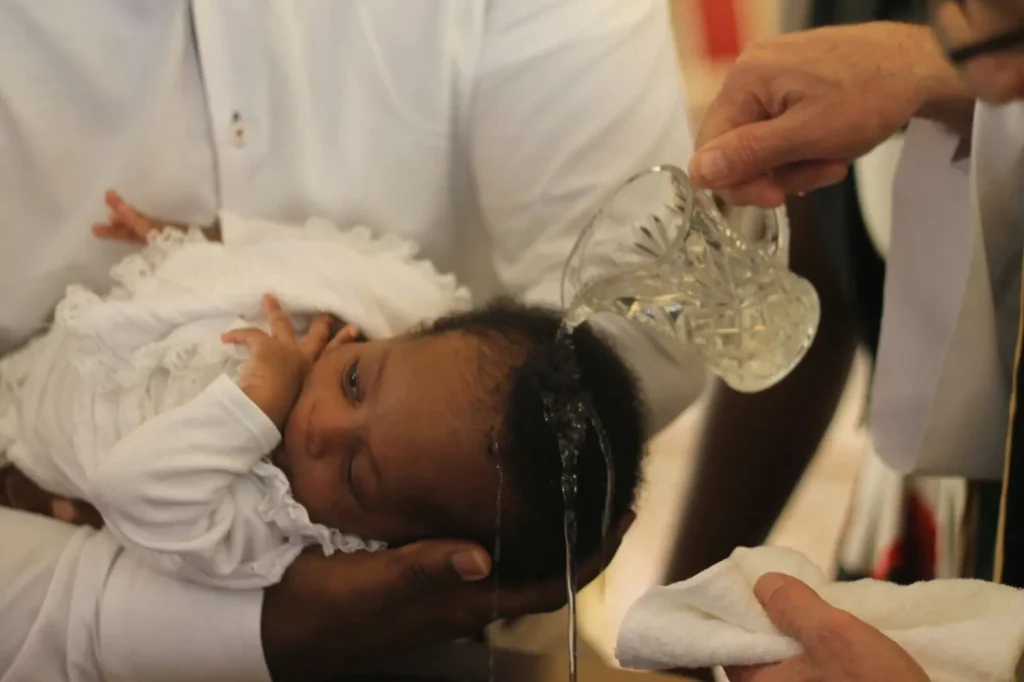
The Mystery of Baptism
In alignment with these scriptures, the ETOTC baptizes male infants at 40 days old and female infants at 80 days old, following Leviticus 12:2-7. However, if an infant is ill, the church will baptize the child immediately, regardless of the set dates, to ensure the infant does not pass away unbaptized and thereby miss the opportunity to enter the kingdom of God as stated in John 3:5. Additionally, the church baptizes any adult who believes and requests baptism.
Baptism at ETOTC
Baptism is one of the most sacred sacraments in the ETOTC. It is a profound act of faith, symbolizing the washing away of sin, the rebirth of the individual into the Christian community, and the start of a new life in Christ. At ETOTC, we cherish this holy sacrament and are here to guide you through its significance and process.
Call Us to Schedule a Baptism
Scriptural Testimony of Baptism
The Mystery of the Holy Communion: What is Holy Communion?
The Holy Communion is prepared and presented in the form of bread and wine, as Melchizedek, King of Salem, presented to Abraham (Genesis 14:18). The mystery lies in the fact that by partaking of the visible bread and wine, believers receive invisible heavenly blessings and eternal life. Jesus said, “…Truly, truly, I say to you, unless you eat the flesh of the Son of Man and drink His blood, you have no life in you; he who eats my flesh and drinks my blood has eternal life, and I will raise him up at the last day. For my flesh is food indeed, and my blood is drink indeed. He who eats my flesh and drinks my blood abides in Me, and I in him” (John 6:53-57). “Whoever eats the bread or drinks the cup of the Lord in an unworthy manner will be guilty of profaning the body and blood of the Lord. Let a man examine himself, and so eat of the bread and drink of the cup. For anyone who eats and drinks without discerning the body eats and drinks judgment upon himself. That is why many of you are weak and ill, and some have died. But if we judged ourselves truly, we should not be judged” (1 Corinthians 11:27-32). Therefore, the ETOTC urges its followers to purify themselves from sin and to receive the true flesh and blood of Jesus Christ, who was crucified for the salvation of the world.
During the Holy Liturgy, the priest blesses the bread and wine, transforming them into the true flesh and blood of the Son of God. St. Athanasius stated, “We believe that the bread and wine before the priest blesses them are simple bread and wine, but after the blessing, they are truly turned into the flesh and blood of the Son of God.” St. John Chrysostom also emphasized that the sacrifice offered by the priests is the same as that offered on the cross, not merely a symbol but the actual body and blood of the Son of God.
Scriptural Support for the Holy Communion
“Now as they were eating, Jesus took bread, and blessed, and broke it, and gave it to the disciples and said, ‘Take, eat; this is my Body.’ And He took a cup, and when He had given thanks He gave it to them, saying, ‘Drink of it, all of you; for this is my Blood of the covenant, which is poured out for many for the forgiveness of sins’” (Matthew 26:26-29; Mark 14:22; Luke 22:19). Jesus also said, “Truly, truly, I say to you, it was not Moses who gave you the bread from heaven. For the bread of God is that which comes down from heaven and gives life to the world” (John 6:32; 35; 51-59). These passages confirm the doctrine of the Holy Communion.

